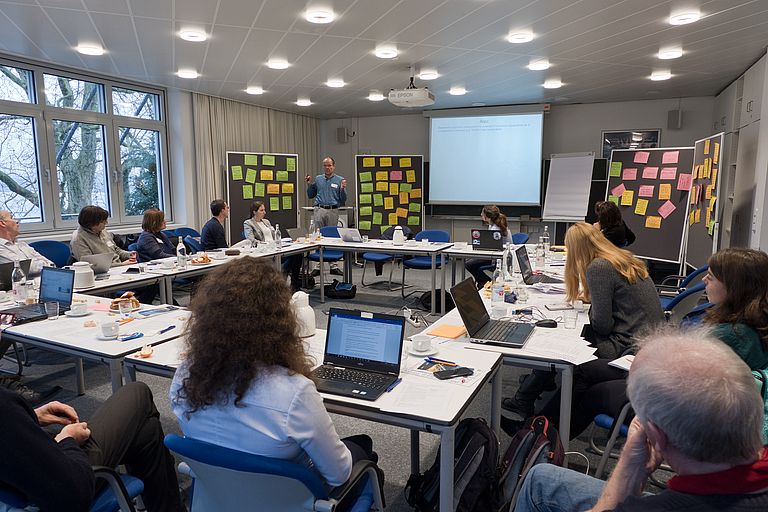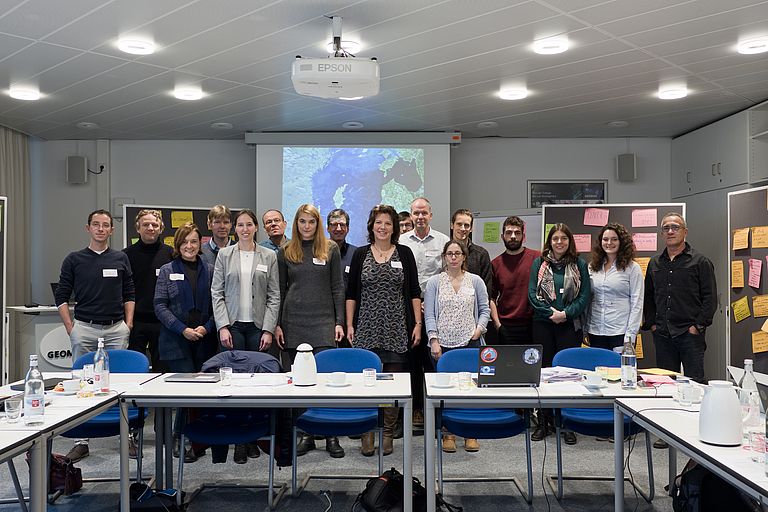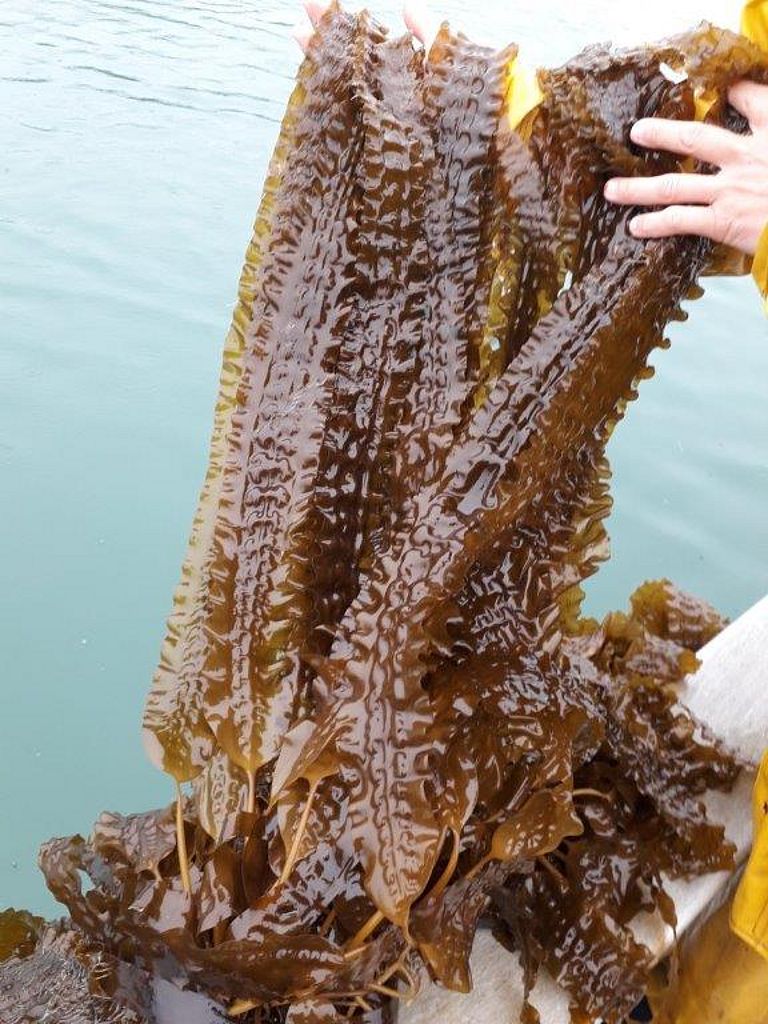Algae aquaculture: Chances for coastal regions in Europe and Africa
Workshop in Kiel discussed possible advantages of algae farms for the marine environment
13 December 2019/Kiel. The interactions of algae monocultures with their environment and the use of algae in integrated marine aquaculture are increasingly attracting scientific interest because they interact with marine biodiversity and ecological and biogeochemical cycles. More information on the influence of algae farming on surrounding habitats and organisms, local marine biogeochemistry and the atmospheric environment is urgently needed. Far-reaching analyses across research disciplines and with the participation of stakeholders are needed to formulate urgent research questions concerning the sustainability, design and expansion potential of macroalgae farming. Algae aquaculture can be not only a profitable and sustainable source of income, but also a tool for carbon fixation, nutrient recovery from over-fertilized coastal waters, and the conservation and restoration of biodiversity and ecosystem services in disturbed environments. In this context, the potential socio-economic and environmental obstacles need to be considered, discussed and further investigated.
On 12 and 13 December, twenty experts from eleven countries addressed these questions at GEOMAR in Kiel at the workshop "RECOVER: Seaweed aquaculture: A promising tool for the restoration and sustainable development of coastal environments or an expensive end-of-pipe technology?” The workshop was sponsored by the EUROMARINETWORK and jointly organized by Dr. Birgit Quack from the GEOMAR Research Unit Chemical Oceanography and Dr. Florian Weinberger from the GEOMAR Research Division "Marine Ecology".
"The participants of the workshop brought with them a very broad range of expertise from the fields of marine biogeochemistry, macroalgae ecology and physiology, plankton, fish and coastal ecology, oceanography and biogeochemical modelling. We also had engineers and algae farmers as well as regional experts with us, so that we could really look at the topic from all sides," emphasizes Dr. Quack.
The lively discussion revolved around the potential, benefits, disadvantages and obstacles of algae aquaculture in Europe and Africa, especially for coastal restoration and recovery in different model regions with different boundary conditions. These model regions included the Bay of Dakar, a heavily polluted environment with direct sewage disposal, Madeira, whose coastal waters can be described as a disturbed environment in nutrient-poor water, and the southwestern Baltic Sea as a habitat over-fertilized by nutrient-rich surface runoff.
After two intensive days of open discussion of the pros and cons from different perspectives, the participants agreed that algal aquaculture can be a good measure to improve the status of disturbed or polluted coastal habitats and even restore them to good status. "However, as each region is unique and has a variety of ecological and socio-economic constraints, measures must be planned according to the specific local objectives and challenges," summarized Dr. Weinberger. Topography, environmental conditions and stressors influence the ecological effect as well as the species used, the spatial extent of facilities and the timing of the work to be carried out. During the workshop days at GEOMAR, a network of researchers and environmentalists was established, which is now collecting information for pilot experiments in the three sample regions.





